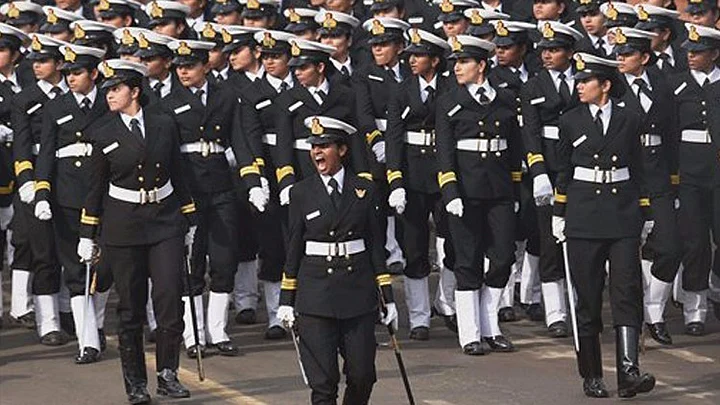In a transformational move, the Indian Army is all set to open up combat positions for women, a gender barrier broken by only a few countries globally.
Army Chief Gen Bipin Rawat said the process to allow women in combat role, currently an exclusive domain of men, is moving fast and initially women will be recruited for positions in military police.
I am looking at women coming as jawans. I am going to start it soon. Firstly, we will start with women as military police jawans.
Currently, women are allowed in a number of select areas – including medical, legal, educational, signals and engineering wings of the Army – but combat roles are kept off limit for them due to operational concerns and logistical issues.
Rawat said women will have to show grit and strength in taking up challenges in combat role and shattering the glass ceiling.
Very few countries, including Germany, Australia, Canada, the US, Britain, Denmark, Finland, France, Norway, Sweden and Israel, have allowed women in combat roles.
Creating history, the Indian Air Force, last year had inducted three women as fighter pilots, less than a year after the government decided to open the fighter stream for women on an experimental basis.
According to a Times Of India report, Avani Chaturvedi, Bhawana Kanth and Mohana Singh, who are now part of IAF's fighter squadron, will undertake fighter training for over a year, where they will learn intensive combat maneuvers and armament firing.
Currently, the IAF has 94 women pilots manning its helicopters and transport aircraft. A decision on inducting more women in combat roles in the IAF will be taken based on the three fighter pilots’ performance after five years.
Similarly, the Indian Navy is also currently deliberating on a policy on having women on board the ships. The Navy allows women in various other segments, including legal, logistics, naval architecture and engineering departments.
(With inputs from PTI)
(At The Quint, we question everything. Play an active role in shaping our journalism by becoming a member today.)
